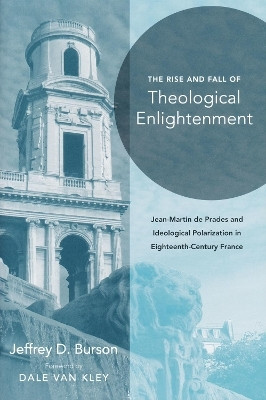Rise and Fall of Theological Enlightenment(English, Hardcover, Burson Jeffrey D.)
Quick Overview
Product Price Comparison
In The Rise and Fall of Theological Enlightenment, Jeffrey D. Burson analyzes the history of the French Enlightenment and its relationship to the French Revolution by casting it as a diverse constellation of Theological Enlightenment discourses, compromised between about 1730 and 1762 by high-stakes cultural and political controversies involving the royal court, the government, and the Catholic Church. Burson places the Abbe Jean-Martin de Prades at the center of the storm. In 1749, Prades was working on his doctorate in theology at the University of Paris. An ambitious young theologian, Prades, like his teachers at the Sorbonne and like many lay and clerical apologists in mid-eighteenth-century France, had been deeply inspired by the spirit of the Enlightenment. Burson reinterprets the Jesuit Enlightenment and its influence on French society, arguing that Jesuits had pioneered ways of synthesizing Locke, Malebranche, and Newton in light of the expansion of the public sphere. Hoping to defend Catholic theology against the Radical Enlightenment by adapting these Jesuit Enlightenment discourses with natural history and Enlightenment theological debates, Prades inadvertently sparked a public scandal that galvanized members of the royal court and the Parlement of Paris, Jansenists, Jesuits, and philosophes, alike-all of whom refashioned the person and work of Prades to suit their own ends. Ultimately, the controversy polarized the cultural politics of pre-Revolutionary France into two camps, that of a self-consciously secular Enlightenment and that of a staunchly opposed Counter-Enlightenment. Prades's history provides Burson with a lens through which to reevaluate the intersections of theology and Enlightenment philosophy, of French politics and the French Catholic church, and of conservatives, moderates, and radicals on all sides in order to provide us with a newly-capacious Enlightenment historiography.


